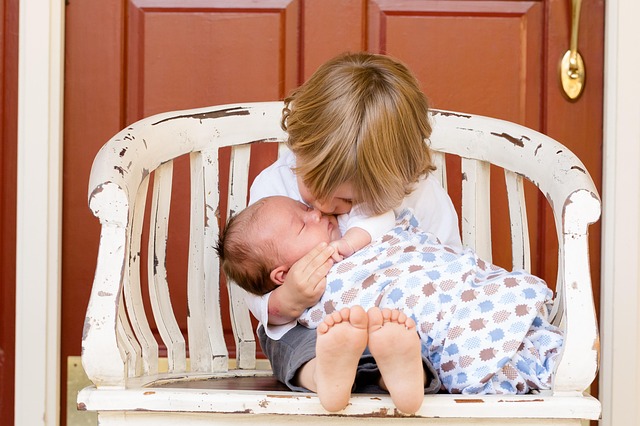In shared parenting arrangements, communication for co-parents is vital. Open dialogue allows parents to express unique needs, aspirations, and concerns, fostering a harmonious environment. Active listening, empathy, and regular check-ins ensure everyone's well-being, inform informed decisions, establish consistent routines, and tailor solutions to diverse family needs. This collaborative approach benefits both parents and children, promoting stability and growth while respecting individual requirements.
In the complex landscape of shared parenting, balancing individual needs and fostering cooperation is an art. This article guides parents through the intricacies of achieving harmony in their co-parenting journey. We explore the significance of understanding unique individual requirements while navigating shared goals. Effective communication for co-parents emerges as a powerful tool, enabling connections and resolving conflicts. Discover strategies to set shared objectives, find common ground, and maintain a balanced environment that nurtures both parents’ needs and children’s well-being.
Understanding Individual Needs in Shared Parenting
In shared parenting arrangements, recognizing and understanding individual needs is paramount. Each parent has unique requirements and preferences that stem from their personal lifestyles, values, and parenting styles. Effective communication for co-parents becomes a cornerstone in this process. Open dialogue allows each parent to express their needs, aspirations, and concerns openly and honestly. By actively listening and empathizing, they can navigate the complexities of shared responsibilities while respecting individual differences.
This understanding fosters a more harmonious environment for both parents and children. It enables co-parents to make informed decisions that consider everyone’s well-being, ensuring each person feels valued and heard. Through regular communication, they can collaborate on solutions, establish consistent routines, and create a cohesive parenting experience that meets the diverse needs of their family.
The Power of Open Communication for Co-Parents
Effective communication is the cornerstone of successful shared parenting. When co-parents prioritize open dialogue, they create a collaborative environment that benefits both themselves and their children. This involves sharing ideas, concerns, and updates about the child’s well-being, as well as discussing important decisions regarding schedules, routines, and boundaries. By fostering an atmosphere where each parent feels heard and respected, conflicts can be resolved more peacefully, and a cohesive parenting strategy can emerge.
Open communication allows co-parents to stay aligned with their shared goals while also acknowledging and respecting individual needs. It enables them to navigate the complexities of joint custody by finding common ground and making informed choices together. This continuous dialogue ensures that any changes or adjustments are made with the child’s best interests at heart, fostering a stable and nurturing environment for their growth and development.
Setting Shared Goals and Finding Common Ground
Effective communication is the cornerstone of successful shared parenting. Co-parents must create a dialogue that fosters understanding and mutual respect, allowing them to set joint goals for their child’s upbringing. This involves openly discussing values, beliefs, and expectations, and then finding areas of overlap where both parents can agree. By doing so, they establish a unified front, ensuring their individual needs are considered while aligning with the overall best interests of their child.
Through active listening and sincere engagement, co-parents can navigate differences and compromise on various aspects of parenting, from discipline methods to educational choices. This process requires patience, empathy, and a willingness to adapt, but it ultimately strengthens their partnership, creating a harmonious environment for their child’s growth and development.
Strategies to Maintain Balance and Foster Cooperation
Maintaining a balance in shared parenting requires an open and honest dialogue between both co-parents, or co-parenting as it’s often called. Effective communication for co-parents is key to ensuring everyone’s needs are met. Regular check-ins, whether through face-to-face meetings, video calls, or text messages, allow for the exchange of ideas, concerns, and updates regarding the children’s welfare. It’s important to establish clear guidelines and expectations from the outset, discussing each parent’s role and responsibilities in childcare, decision-making, and household tasks.
Co-parents should also strive to create a unified front when making major decisions affecting the family. This involves actively listening to one another’s perspectives, showing empathy, and finding common ground. Compromise is essential; both parents need to be willing to adapt their preferences and routines to establish a harmonious environment for the children. Fostering this cooperative attitude strengthens the parental bond, ensuring that individual needs are balanced within a shared parenting framework.
In balancing individual needs with shared parenting goals, open communication becomes the cornerstone for successful co-parenting. By understanding each other’s perspectives and actively listening, parents can set meaningful shared goals and find common ground. This collaborative approach not only fosters cooperation but also ensures that every child’s unique requirements are met, creating a harmonious environment for their overall well-being and development. Effective communication strategies are essential tools for navigating the complexities of shared parenting, ultimately strengthening the bond between co-parents and children alike.
